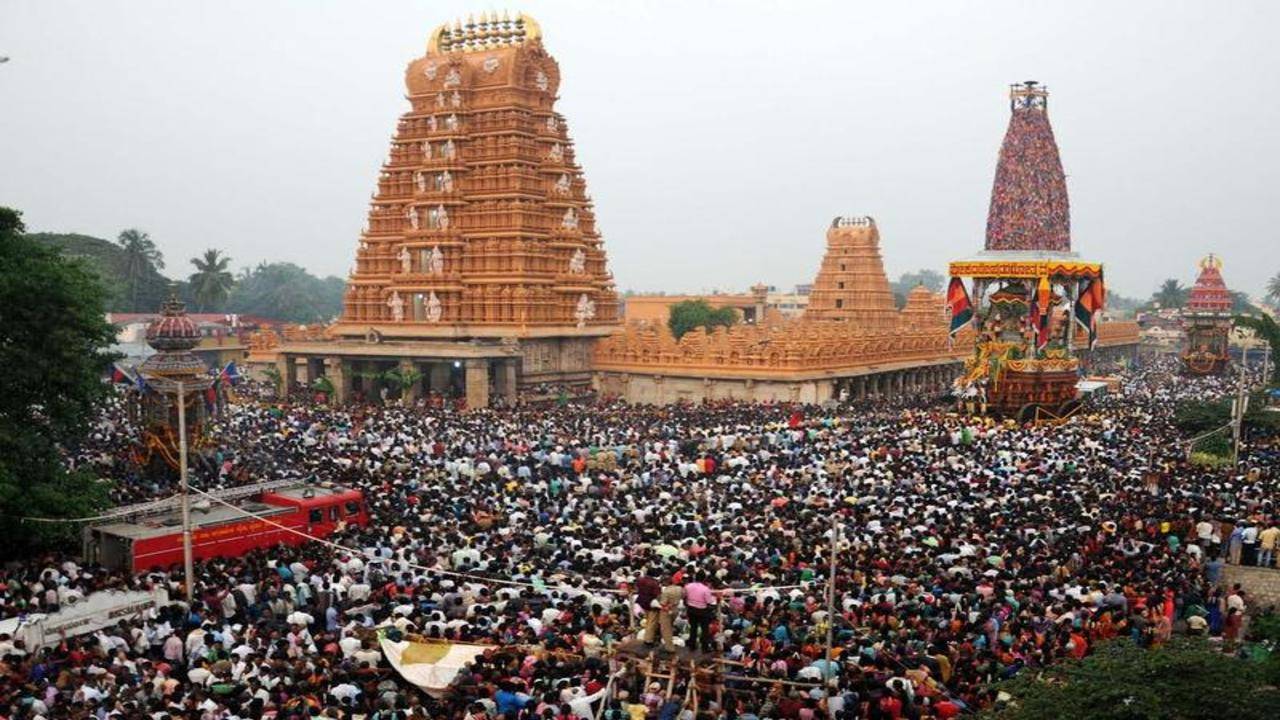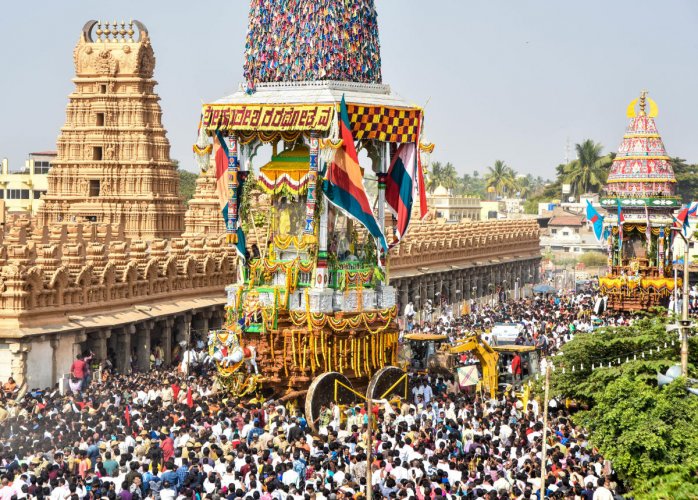Commotion erupted in the tranquil temple town of Nanjangud, Mysuru, as tension flared between members of the Dalit Sangharsha Samiti and devotees during a customary ritual near the temple.
Full story:
This year’s procession, traversing the revered Ratha Beedhi, encountered opposition from members of the Dalit Sangharsha Samiti. Their objection stems from their reverence for Mahishasura as a King, believing that the ritual is offensive to their sentiments. This disagreement escalated into a heated exchange of words between the two groups, creating a challenging situation.

Source: Times of India
Despite the tension, the gathering of hundreds of devotees at the site remained steadfast. In an attempt to mitigate the conflict, priests on the scene elucidated that the ritual has been an integral part of the tradition for many years and could not be omitted. The clash between tradition and opposing sentiments underscored the complexity of navigating cultural practices in a diverse society.
The ‘samhara day’ holds profound significance for the community, with the procession serving as a visual representation of the triumph of good over evil. The ritualistic destruction of the Andakasura rangoli has been a customary practice, uniting the community in the observance of this symbolic event. However, the clash this year has shed light on the need for open dialogue and understanding between different groups within the community.

Source: indiachal
As tensions subsided and the procession continued its route, it became evident that the clash was not merely about a single ritual but touched upon broader issues of cultural sensitivity and inclusivity. It prompted reflection on the importance of fostering communication and mutual respect among diverse sections of society.



















































































